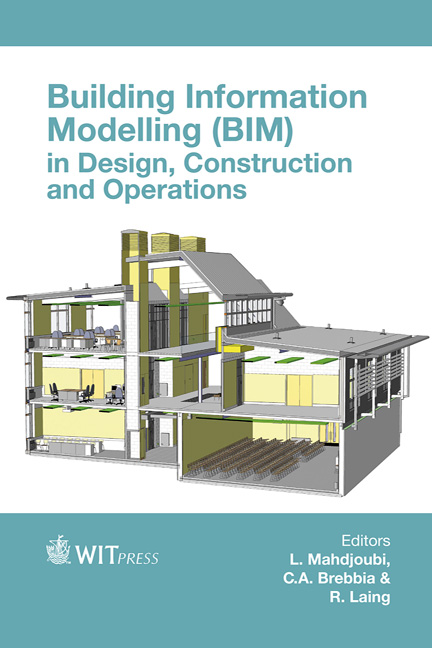The Use Of Building Information Modelling (BIM) In Managing Knowledge In Construction Project Delivery: A Conceptual Model
Price
Free (open access)
Transaction
Volume
149
Pages
11
Page Range
107 - 117
Published
2015
Size
444 kb
Paper DOI
10.2495/BIM150101
Copyright
WIT Press
Author(s)
T. Bouazza, C. E. Udeaja, D. Greenwood
Abstract
Today’s construction environment is described as turbulent due to economic crisis, global competition and rapid changes in industry structure. For most of the construction organisations to stay afloat within this environment, organisations have to find new ways to create value for their potential and existing clients. Building information modelling (BIM) technology has been identified by many proponents in this area as the technology that can create value within the supply chain (SC). In the UK, BIM is increasingly being seen not just as a technical process to determine the likely performance of projects but a valuable tool in the mediation between many associated stakeholders with their differing visions, numerous requirements and variation in their expertise, and as a valuable process to promoting learning and managing knowledge. This emerging role presents new and considerable challenges for management of knowledge during its generation, capture and reuse to ensure the meaningful engagement of such stakeholders in the project process. This research will investigate the effective methods for Knowledge Management (KM) to be implemented in the current construction environment, using BIM as a means for managing knowledge and learning. The work presented in this paper will develop a conceptual model of how BIM can be used to manage knowledge in construction project delivery. The paper will describe the proposed conceptual model that uses BIM to manage knowledge in construction project delivery and concludes with suggestions of how this might be implemented in practice, as well as further work that is required in this area.
Keywords
KM, BIM, construction project, tier 2 supply chain, COBie





